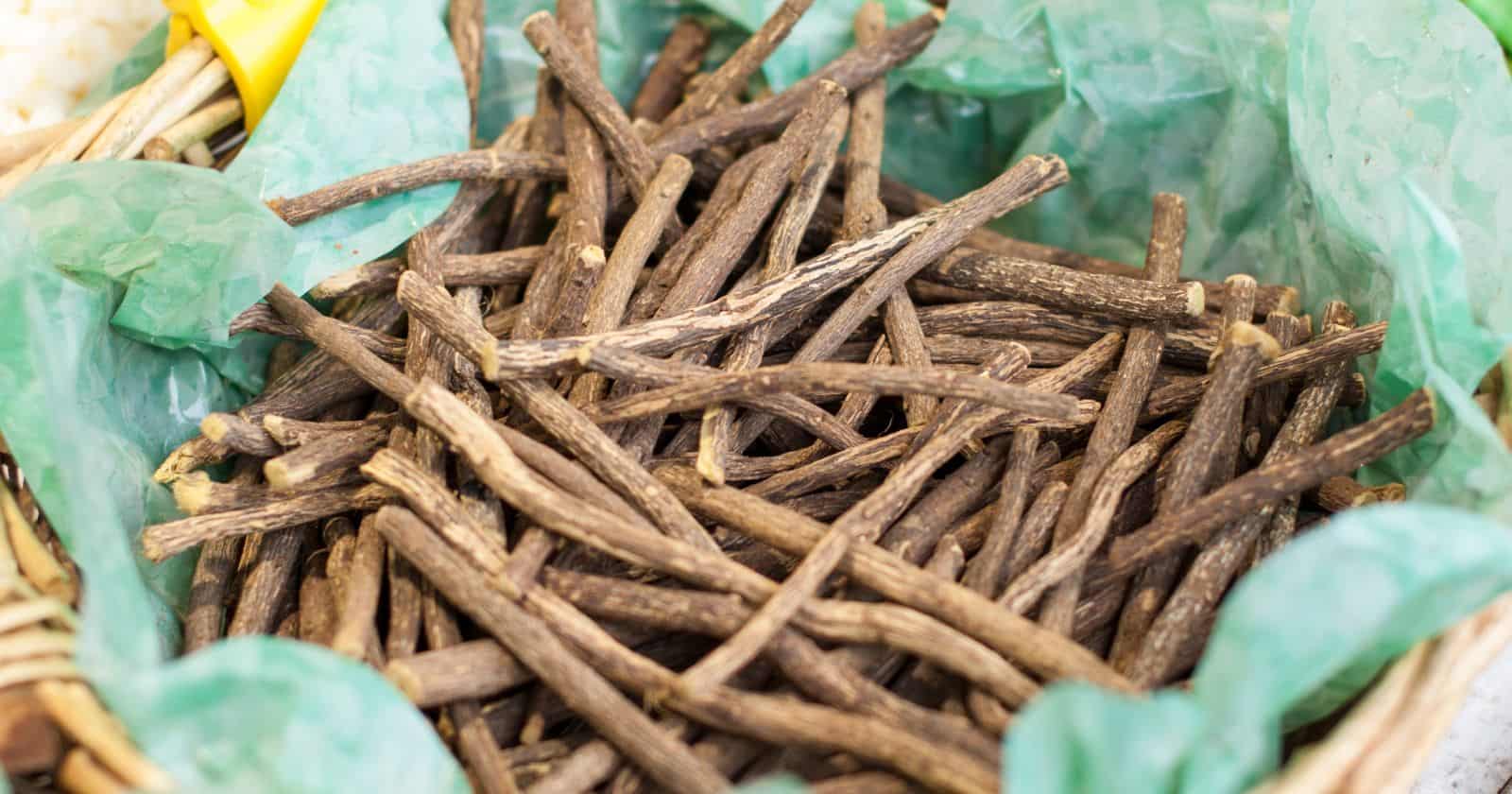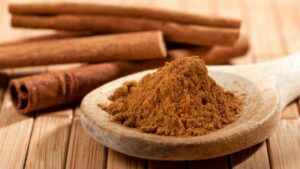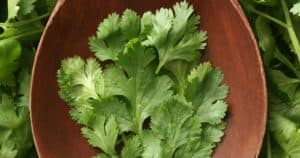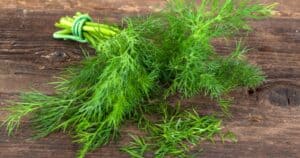Are you curious about the root of the licorice plant and its many uses? Perhaps you’re searching for a natural alternative to traditional medicine for common ailments such as coughs or digestive issues.
Look no further than licorice root, a centuries-old remedy with many benefits.
This article will delve into the history and uses of liquorice root in traditional medicine, the different forms it can be consumed in, and its potential side effects.
We’ll also explore this versatile herb’s anti-inflammatory and antioxidant properties and its potential to improve overall health and wellness.
So please sit back, grab a cup of licorice tea, and let’s discover everything you need to know about licorice root.
The History of Liquorice Root in Cooking
Liquorice root has played a significant role in cooking throughout history. Its use in this context dates back over 4,000 years! The use of licorice root in cooking began in China in 2300 BC, where it was used as a flavoring and ingredient in traditional dishes.
In ancient Egypt, it was used to make a sweet, syrupy liquid. The plant, which is native to North Africa, the Middle East, and China, has been widely used for its unique flavor and sweetness, which still makes it popular today.
Throughout history, licorice root has been highly valued for its medicinal properties. It has been used to treat various ailments, including stomach ulcers, coughs, and sore throats. The ancient Greeks, known for their extensive use of herbs in medicine, used licorice root in various remedies.
The herb has also been used in traditional Chinese medicine for thousands of years, where it is believed to have multiple therapeutic effects.
Today, licorice root is often used in modern cooking to add a unique flavor to dishes. Its sweet, slightly bitter taste is versatile and pairs well with various spices and other ingredients. In addition to its use in cooking, licorice root is also used in the production of candy, sweets, and baked goods, as well as in herbal supplements and tinctures.
Different Forms of Liquorice Root Consumption
Liquorice root is a versatile ingredient that can be consumed in various forms, each offering unique benefits for our health and well-being. Here are some of the popular ways to enjoy liquorice root:
- Herbal Tea: Liquorice root tea is a popular way to benefit from its medicinal properties. It is easy to prepare and has a soothing effect on the mind and body. To make licorice root tea, steep a teaspoon of dried root in hot water for 5-10 minutes. You can also add herbs like ginger, peppermint or chamomile to enhance the flavor.
- Tincture: Liquorice root tincture is a concentrated extract from soaking the root in alcohol or glycerin. It is used to relieve digestive issues, coughs, and sore throat. A few drops of tincture can be added to water or juice and consumed as needed.
- Powder: Liquorice root powder is made by grinding the dried root into a fine powder. Liquorice root powder is a natural anti-inflammatory and can help reduce inflammation. It can be added to smoothies or mixed with other powdered herbs to make capsules or tablets.
- Supplement: Liquorice root supplements are available as capsules or tablets. They are convenient for those who have difficulty consuming the raw root. Licorice root supplements promote healthy digestion, reduce stress, and support the immune system.
- Flavoring: Liquorice root is often used as a flavoring in candies, beverages, and tobacco products. It adds a sweet and distinctive taste that is loved by many. It is also used to flavor sauces, syrups, and custards.
Potential Side Effects of Liquorice Root
The consumption of liquorice root may cause some severe side effects that could potentially harm the body. Large amounts of this ingredient can cause various issues, including increased blood pressure, decreased potassium levels, abnormal heart rhythms, high blood pressure, edema, lethargy, and pseudo-aldosteronism.
To avoid these potential side effects, limiting the intake of liquorice root and preventing overconsumption is essential.
Increased Blood Pressure
Increased blood pressure is one of the most concerning side effects of liquorice root consumption. This is due to glycyrrhizin, a compound that can increase sodium retention in the body, leading to a rise in blood pressure.
Ingesting large amounts of licorice root can adversely affect the body’s cardiovascular system and put a person at risk of developing hypertension.
Decreased Potassium Levels
Licorice root can also cause a decrease in potassium levels in the body. This is because it can cause the body to excrete potassium, leading to a deficiency. This can cause muscle weakness, fatigue, and even abnormal heart rhythms.
Abnormal Heart Rhythms
Speaking of irregular heartbeats, another potential side effect of licorice root is the development of abnormal heart rhythms. The body’s potassium levels play a crucial role in the proper functioning of the heart muscle. A deficiency can result in an assortment of heart-related issues – including irregular heartbeats.
While liquorice root is generally safe to consume in small amounts, overconsumption can lead to serious side effects. Always be mindful of your liquorice root intake and stay safe! If you are experiencing any of the mentioned symptoms, it is best to stop consumption immediately and seek medical attention.
How Liquorice Root Can Improve Overall Health and Wellness
Licorice root can do wonders for your overall health and wellness. This magical herb has been used for centuries to treat various health conditions like lung, liver, circulatory, and kidney diseases.
Not only that, but it’s also promoted as a dietary supplement for people dealing with digestive problems, menopausal symptoms, cough, and bacterial and viral infections.
If you’re suffering from heartburn, eczema, fatigue, or menopausal symptoms, licorice root might just be the solution you’re looking for. It’s packed with potent antioxidants, and anti-inflammatory and antimicrobial properties that can help ease these ailments.
Don’t just take my word for it, though; let’s dive deeper into the benefits of this extraordinary root.
Firstly, liquorice root is excellent when it comes to treating stomach ulcers. As mentioned before, it boosts mucus production in the stomach, crucial in preventing and treating ulcers.
Several studies have shown that liquorice root is highly effective in treating stomach issues, making it a worthy ingredient in modern medicine.
Secondly, licorice root has shown great promise in people dealing with respiratory issues. It can help ease cough and chest congestion by thinning out mucus, making it easier to cough up.
This property makes licorice root a popular ingredient in cough syrups, but it’s essential to consume it modestly, as too much of it could lead to unwanted side effects.
Lastly, liquorice root can help regulate hormones in menopausal women. It contains a compound called phytoestrogen that mimics the effects of estrogen in the body. This makes it an excellent candidate for relieving symptoms women experience during menopause, such as hot flashes, mood changes, and vaginal dryness.
Recipe Idea Featuring Liquorice Root
Are you looking for a unique twist to your recipes? Why not try using liquorice root? This versatile ingredient can be added to various dishes to create a distinctive anise flavor that will leave your taste buds craving more. Some great recipes featuring licorice root include:
- Caramelized Carrot and Liquorice Root Soup: A combination of sweet and savory, this soup is the perfect way to add a kick to your daily intake of veggies—steep the hard, woody licorice root in hot liquid for maximum flavor.
- Liquorice Root and Malt Beer Beef Stew: This hearty stew is perfect for a cold winter night. The malt beer and licorice root combine to create a rich and earthy flavor that will warm you up from the inside out.
- Macadamia Nuts with Ground Liquorice and Salt: Looking for a unique snack to share with friends? Try tossing macadamia nuts with ground licorice and salt for a sweet and salty treat.
But continue beyond just these recipes! Licorice root can also make teas, syrups, sauces, and custards infused with the anise flavor. For a simple licorice root tea, boil water with the meat for 10 minutes and add honey to taste.
Liquorice root is not only delicious, but it also has numerous health benefits. It has been used as a natural remedy for digestive and respiratory problems, and its anti-inflammatory properties.
However, it is essential to note that too much licorice root can be harmful, especially for those with high blood pressure or other medical conditions. As with any ingredient, it should be used in moderation.
When using licorice root in your recipes, source it from a reputable retailer and check for additional additives or preservatives. Fresh and organic licorice root will provide the best flavor and health benefits.
Liquorice Root Substitute
Liquorice root substitute? Anise, star anise, dandelion, valerian, and licorice extract are great alternatives. Anise is the closest match in taste and can be swapped in at an equal amount. But if you’re feeling adventurous, try other options for a unique twist.
- Anise: Adds a sweet, slightly spicy flavor similar to licorice root.
- Star anise: Brings a more robust anise flavor and a hint of bitterness.
- Dandelion root: Has a slightly nutty taste and can help ease digestion.
- Valerian root: Known more for its calming properties, it adds a subtle earthy flavor.
- Licorice extract: A highly concentrated licorice flavor, so use sparingly.
When using these substitutes in cooking, remember that the flavor profile may vary depending on the ingredient and the dish. And remember, these substitutes may not have the same health benefits as the original licorice root. Experiment and adjust to your liking.
If you’re looking for natural remedies, dandelion, and valerian roots have been used for centuries for medicinal purposes. Dandelion root can help with liver function and digestion, while valerian root promotes relaxation and sleep.
Licorice extract is also believed to have some health benefits, such as soothing sore throats and coughs.
However, it’s important to note that using any natural supplement or remedy should be done with caution and under the guidance of a healthcare professional. They can advise on potential side effects or interactions with medication.





